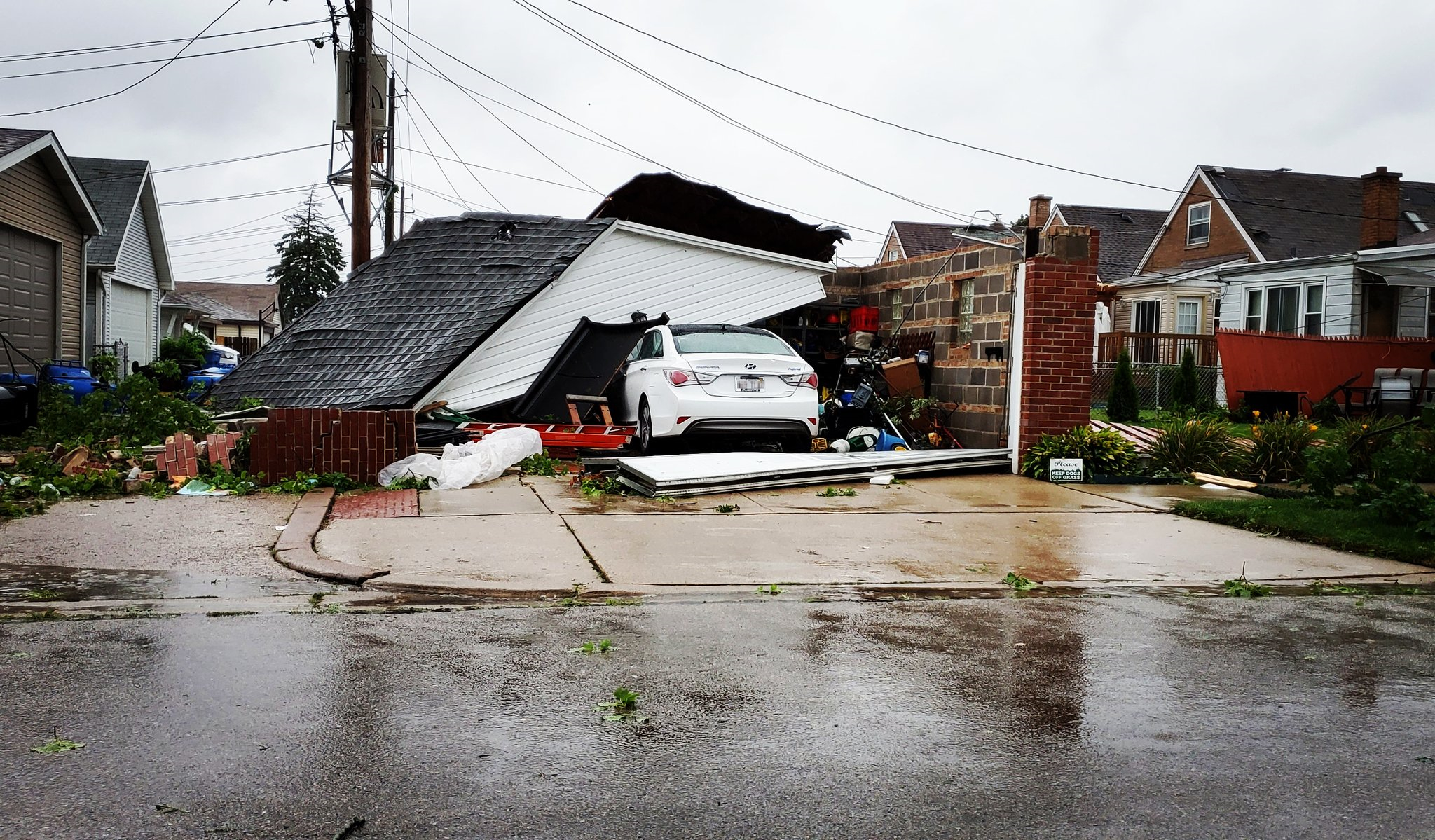Soaring premiums, denied claims, and disappearing coverage in Iowa and elsewhere underscore the need for progressive interventions to reduce climate risks and redistribute costs.
There’s a common misconception that the property insurance challenges hurting aspiring homeowners, affordable housing developers, and renters as the fossil fuel-driven climate crisis worsens are confined to “hurricane states” in the Northeast and the South and “wildfire states” in the West. But as Consumer Federation of America insurance director Doug Heller told the U.S. Senate Banking Committee last September, various extreme weather disasters exacerbated by climate change are wreaking havoc across the United States, with significant damages and risks seen in the Midwest.
On Thursday, Guardian Mutual Insurance Association general manager Jeff Weddle told Axios that home insurance markets in Iowa and surrounding states are a “wreck.” The outlet reported that “Iowans are paying big costs to ensure their homes are insured or they’re holding off from buying homes entirely, partly due to rising premiums.” Premiums in the Midwest have skyrocketed in the wake of multiple severe wind/thunderstorms called derechos—intensified by surging global greenhouse gas emissions—and destructive hailstorms, which prompted the reinsurance companies that insurance companies rely on to hedge against catastrophic losses to further jack up their prices (accelerating a yearslong trend in the unregulated, global reinsurance market). Insurers, in turn, are passing on the soaring cost of reinsurance to their policyholders by hiking rates, denying claims, and withdrawing coverage altogether.
Unfortunately, Iowans looking for relief and reassurance cannot take comfort that the state’s insurance commissioner, Doug Ommen, will protect them. In an interview last December, Ommen essentially told policyholders, “You’re on your own.” It’s incumbent upon individual residents, he insisted, to navigate heightened risks by talking with their agents, buying better shingles, and parking their cars in garages. In so doing, Ommen miscast what is a complex social and moral problem into an issue of personal responsibility. There was no acknowledgment of the broader, quite alarming political-economic implications of the problem (e.g., insurance losses cascading through the banking system), nor did he call on the insurance companies now leaving consumers in the lurch to stop investing in the very same coal, oil, and gas firms most responsible for generating planet-heating pollution.
Such uninspiring drivel—and the general lack of ambition among many state-level insurance regulators who seem content to take their marching orders from the National Association of Insurance Commissioners (NAIC), a private trade group that Jordan Haedtler and I recently profiled—elicits fears of society sleepwalking into a situation wherein the mounting unavailability/unaffordability of home insurance destabilizes mortgage markets. The resulting devaluation of large swaths of real estate could provoke a financial upheaval akin to the 2007-08 crash unleashed by predatory subprime lending.
As we have argued, Democrats must start providing a climate-sensible and pro-consumer alternative to the deregulatory agenda that Republicans are pushing to help insurers maximize profits and shift risks to the less powerful. What’s happening in Iowa and around the Midwest should remind policymakers of the pressing need for better oversight and robust interventions at the state and federal levels.
In addition, well-financed climate groups should develop a communications strategy to help people pinched by the escalating insurance crisis understand its connection to the climate crisis. There are potential climate voters who may struggle to connect the dots unless groups engage in strategic communications across all channels.
A discussion of solutions is beyond the scope of this blog post. However, interested readers should check out the following resources:
- This recent article by Lilith Fellowes-Granda, associate director of financial regulation at the Center for American Progress, which identifies four principles for managing climate risks in the insurance sector;
- Heller’s congressional testimony, which covers the need to minimize climate risks via fossil fuel divestment as well as public investment in preventive infrastructure and to lessen insurers’ reliance on the transnational reinsurance market through the development of a public reinsurance facility;
- Haedtler’s proposals for state policymakers, which draw on recommendations made last year by the Treasury Department’s Federal Insurance Office; and
- Zac Taylor and Sarah Knuth’s introduction to the Climate and Community Project’s new blog series outlining the contours of a just and sustainable response to the interlinked climate-insurance-housing crisis.
The above photo was taken by @Jasong1451 and is licensed under CC BY-SA 4.0

